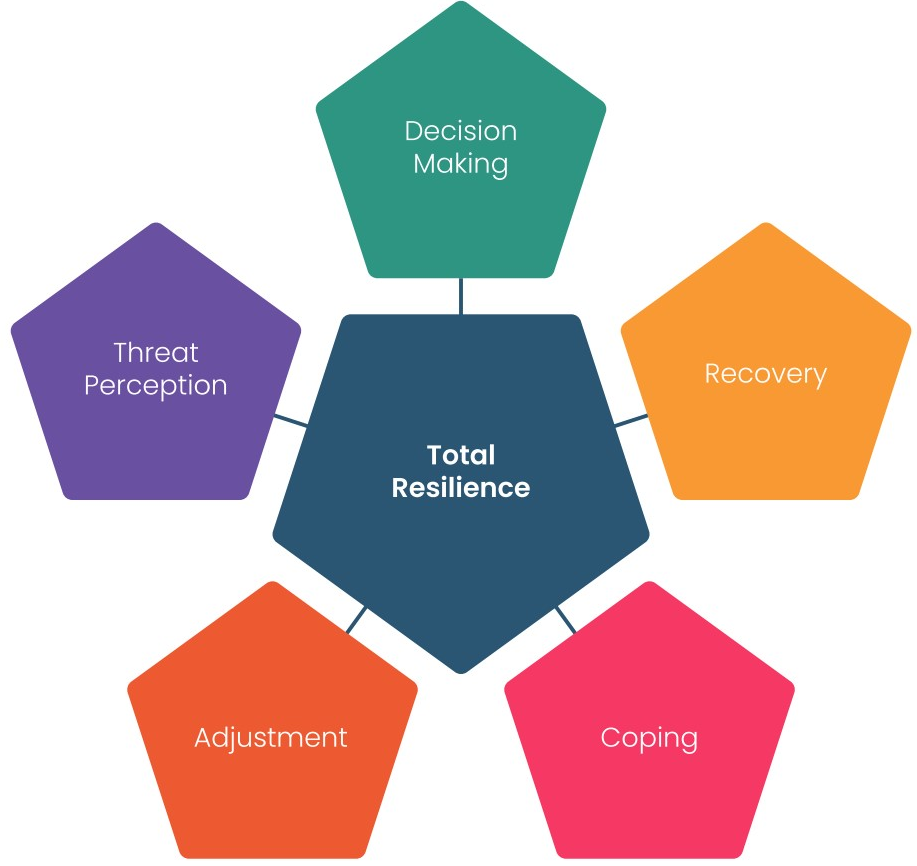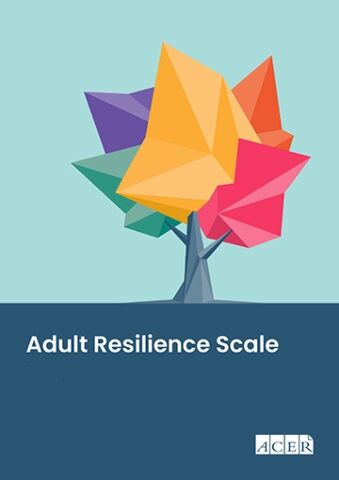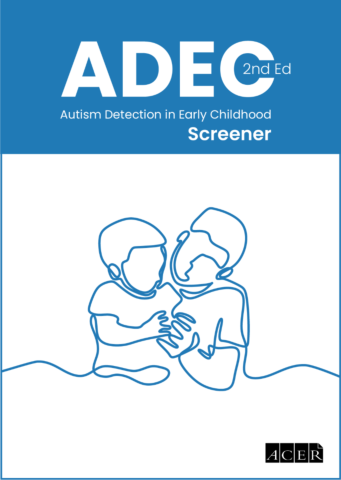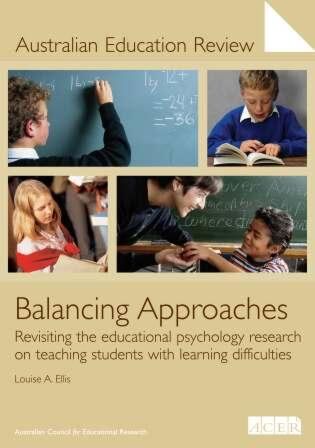Adult Resilience Scale
Assessment of individuals' resilience skills and capabilities.
Purchases of downloadable digital products are non-refundable. Please carefully consider your decision before making a purchase.
Author(s) : Denis Flores
Publisher : ACER, 2021
SKU : PG_ADULTRESILIENCESCALEUK
The Adult Resilience Scale assesses dimensions of resilience in individuals, and provides a framework for developing resilience skills and capabilities.
Many people have encountered an adverse experience at some point in their lives. Yet, some bounce back quickly while others endure the difficulties of adjusting for a longer period. A distinguishing factor between these people is their level of resilience.
Resilience has been widely defined as the ability to adapt to the changing environment and to recover from adversity and personal setbacks. Resilience has also been expressed as a competency or skill, embodying the personal qualities of individuals who thrive in difficult circumstances. Research suggests that resilient people adapt more successfully in response to major life events and traumatic experiences
The Adult Resilience Scale has been developed to provide an understanding of the concept of resilience, and measures the five dimensions of:
- Threat Perception
- Adjustment
- Decision Making
- Coping
- Recovery.
The Adult Resilience Scale suite includes a Manual as well as a Coach and Client Report.
Sample Online Adult Resilience Scale Client Report
Sample Online Adult Resilience Scale Coach Report


The Adult Resilience Scale was developed to provide a tool to measure resilience in individuals.
Based on extensive research from military and civilian operational occupations, the Adult Resilience Scale utilised a large international database. There was significant item analysis and review, resulting in a 75-item scale measuring the Five Dimensions of Threat Perception, Adjustment, Decision Making, Coping and Recovery. The Adult Resilience Scale assesses these dimensions in individuals, and provides a framework for developing resilience skills and capabilities.
The Adult Resilience Scale pays particular attention to Threat Perception, as it provides a context for the candidate’s overall behaviour and emotions. This is because people can be resilient in some situations but not in others, making the Adult Resilience Scale particularly robust. The Five Dimensions of Resilience measured by the Adult Resilience Scale are as follows:
- Threat Perception – perceptive ability or situational awareness, awareness of a potential or actual problem or threat and ability to formulate a plan to continue. (Being aware of the situation and noticing problems when they arise.)
- Adjustment – ability to adjust when unexpected events cause disruption, assessment of recovery options, flexibility and openness to new circumstances. (Being flexible and open to new circumstances, recognising when a new approach to a problem is needed.)
- Decision Making – ability to make clear decisions during stressful situations. (Making good decisions under pressure, assessing the available options and choosing the one that is most conducive to recovering from the problem.)
- Coping – capacity to deal with difficult issues as they arise and to put stressful events into perspective. Operation of one’s recovery coping mechanisms and accepting that a change in approach or strategy is required, so that stressful events are less likely to have a negative impact. (Enacting the chosen option, and applying the chosen actions to the problem at hand.)
- Recovery – speed of return to normal activity after challenging situations. (Regaining strength and resilience after the problem is dealt with.) The Five Dimensions all contribute to Total Resilience, which is defined as the ability to thrive in difficult circumstances.
As a soldier, military psychologist and firefighter for over twenty years, resilience played a major role in the work of the author, Denis Flores. Formal research and alignment with the International Military Psychology Symposium (IAMPS) led to an invitation to be a keynote speaker at the 44th IAMPS in St Petersburg, Russia in 2008, on Testing for Situational Awareness in the Military, and in the following year to a presentation to the 45th Symposium in Latvia, entitled, Resilience, Enhancing Military Performance and Safety.
The original concept of a resilience assessment was developed and presented at the latter conference in Latvia. Five Dimensions were proposed: Threat Perception, Decision Making, Adjustment, Coping and Recovery. The Adult Resilience Scale pays particular attention to Threat Perception, as it provides a context for the candidate’s overall behaviour and emotions. This is because people can be resilient in some situations but not in others, making the Adult Resilience Scale particularly robust.
The original understanding of resilience comes from physics and is defined as, ‘The quantity of work given back by a body that is compressed to a certain limit and then allowed freely to recover its former size or shape’ (Funk & Wagnells, 1958). In human terms, it can be described as the act or power of springing back to a former position or state. For the purposes of the Adult Resilience Scale, resilience is defined as, ‘The ability to adapt to the changing environment and bounce back from adversity and personal setbacks’. In clinical and psychiatric contexts, resilience has also been recognised as a measure of stress coping ability. The importance of resilience as a construct goes back many years but came to greater relevance in organisational psychology through the military, with armies throughout the world developing resilience training. Resilience has also been expressed as competence because it embodies the personal qualities that enable individuals to thrive in difficult circumstances. It is a different construct to personality, but our research suggests that resilient people adapt more successfully in response to major life events and traumatic experiences.
The following qualifications are required to access this product. Please
login or register to proceed
Please contact ACER Customer Service on +61 3 9007 2048 if you have any queries.
Human Resources (HR)
- A Master’s degree in Human Resources/related discipline OR
- A Bachelor degree in Human Resources/related discipline PLUS evidence of a technical knowledge of test construction, use, administration and feedback OR
- Completion of the ACER HR Certification. Click here to register for the ACER HR Practitioner Training.







